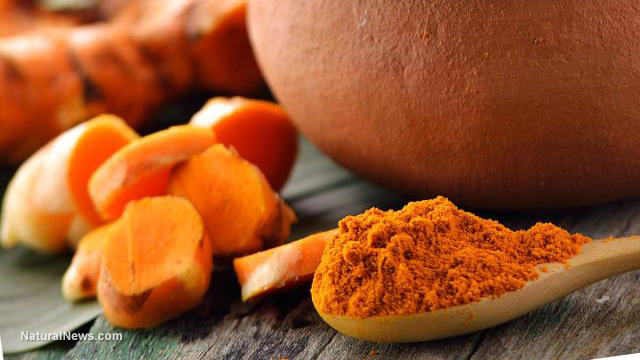 Turmeric is known for its iconic yellow-orange hue and for being a staple in South Asian cuisine. It has become increasingly popular for its medicinal uses and health benefits, and is widely considered to be a “superfood.” While there are many skeptics, turmeric has been subjected to hundreds of studies and scientific experiments. Curcumin, one of the key compounds found in turmeric, has been of particular interest. Many studies of turmeric root and curcumin have yielded promising results. The drawbacks of many scientific studies is their lack of human test subjects, however.
Turmeric is known for its iconic yellow-orange hue and for being a staple in South Asian cuisine. It has become increasingly popular for its medicinal uses and health benefits, and is widely considered to be a “superfood.” While there are many skeptics, turmeric has been subjected to hundreds of studies and scientific experiments. Curcumin, one of the key compounds found in turmeric, has been of particular interest. Many studies of turmeric root and curcumin have yielded promising results. The drawbacks of many scientific studies is their lack of human test subjects, however.
As part of the BBC series, Trust Me I’m A Doctor, Dr. Michael Mosley and his colleagues sought to investigate what benefits, if any, turmeric might provide humans in their daily lives. To conduct their study, nearly 100 volunteers were recruited to participate in the experiment for six weeks. Most of the volunteers were between 40 and 50 years of age, and did not frequently consume curries or other turmeric-based dishes. The volunteers were then divided into three separate groups. One group would be asked to take a 1-teaspoon supplement of turmeric daily in the form of a 3.2mg capsule. Another group would also take one teaspoon of turmeric daily, but would need to incorporate it into their diet somehow. The remaining test subjects were part of the control group and were given a placebo.
Blood tests were taken before the experiment began, and following its conclusion. The researchers examined the methylation of the volunteers’ genes, and also utilized a new testing method recently developed by Dr. Martin Widschwendter from University College, London, for analyzing how well their blood cells were combating inflammation. For the Daily Mail, Dr. Mosley writes: “The hope was this would give us an idea of how well their immune systems were performing.”
What the researchers found was quite astonishing. While the placebo and supplement groups showed very little difference, the group of test subjects who added turmeric to food exhibited substantial changes. This finding is not actually all that surprising, however. The Health Minded notes that curcumin is a fat-soluble compound, so consuming it with other foods that contain fat is said to help boost absorption. Studies have found that consuming turmeric with black pepper also boosts nutrient absorption significantly. BBC News writes that many of the participants chose to combine their turmeric with warm milk or yogurt.
 Professor Widschwendter stated that: “We could see changes to a gene associated with cancer, depression and allergies such as asthma.” The new testing methodology that he has developed is able to analyze not just the genes, but how hard they are working. Professor Widschwendter adds: “The test looks at the changes in the packaging, known as methylation, that allows us to predict the risk of certain diseases, depending on which genes are affected and where the genes are affected.”
Professor Widschwendter stated that: “We could see changes to a gene associated with cancer, depression and allergies such as asthma.” The new testing methodology that he has developed is able to analyze not just the genes, but how hard they are working. Professor Widschwendter adds: “The test looks at the changes in the packaging, known as methylation, that allows us to predict the risk of certain diseases, depending on which genes are affected and where the genes are affected.”
While Widschwendter noted that the changes they looked at were only those in the blood, and may not represent what was going on in bodily tissues, he nevertheless seemed excited about the results. The professor noted: “However, the results were fascinating. We showed turmeric is able to reset important components of our gene’s software.”
One possible mechanism behind turmeric’s benefits may be that it changes the way that the enzymes involved with methylation behave. One thing is for sure though: The health benefits of turmeric root are not to be underestimated.
Written by Vicki Batts for Natural News. ~ September 23, 2016.
FAIR USE NOTICE: This site contains copyrighted material the use of which has not always been specifically authorized by the copyright owner. We are making such material available in our efforts to advance understanding of environmental, political, human rights, economic, democracy, scientific, and social justice issues, etc. We believe this constitutes a ‘fair use’ of any such copyrighted material as provided for in section 107 of the US Copyright Law. In accordance with Title 17 U. S. C. Section 107, the material on this site is distributed without profit to those who have expressed a prior interest in receiving the included information for research and educational purposes. For more information go to: http://www.law.cornell.edu/uscode/17/107.shtml“
